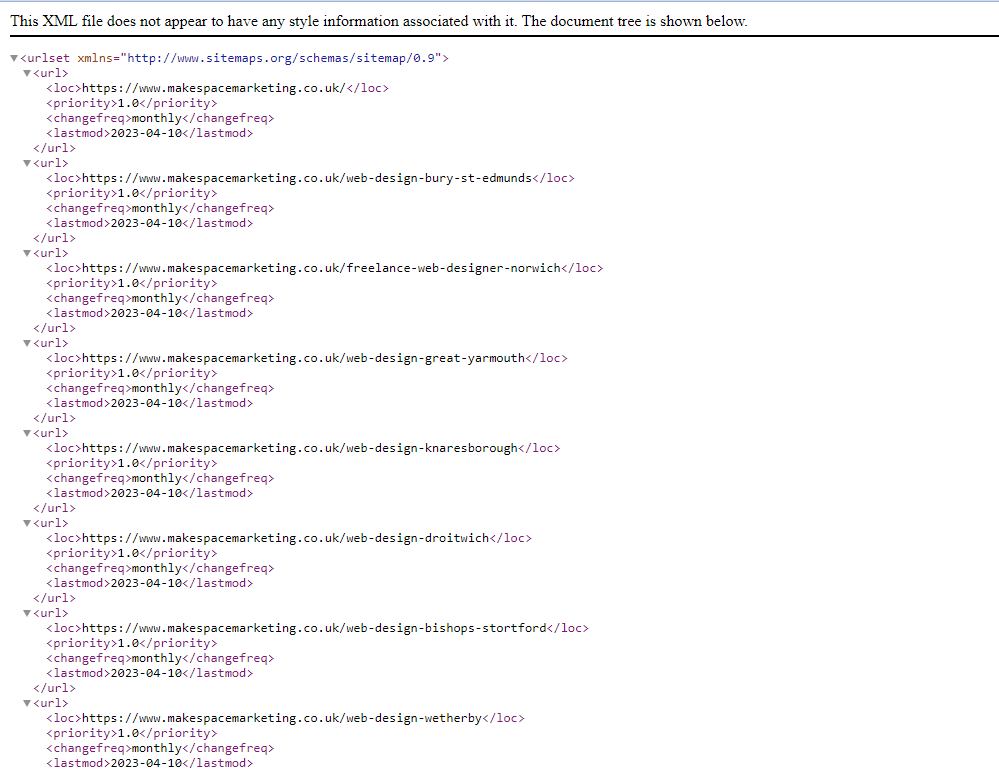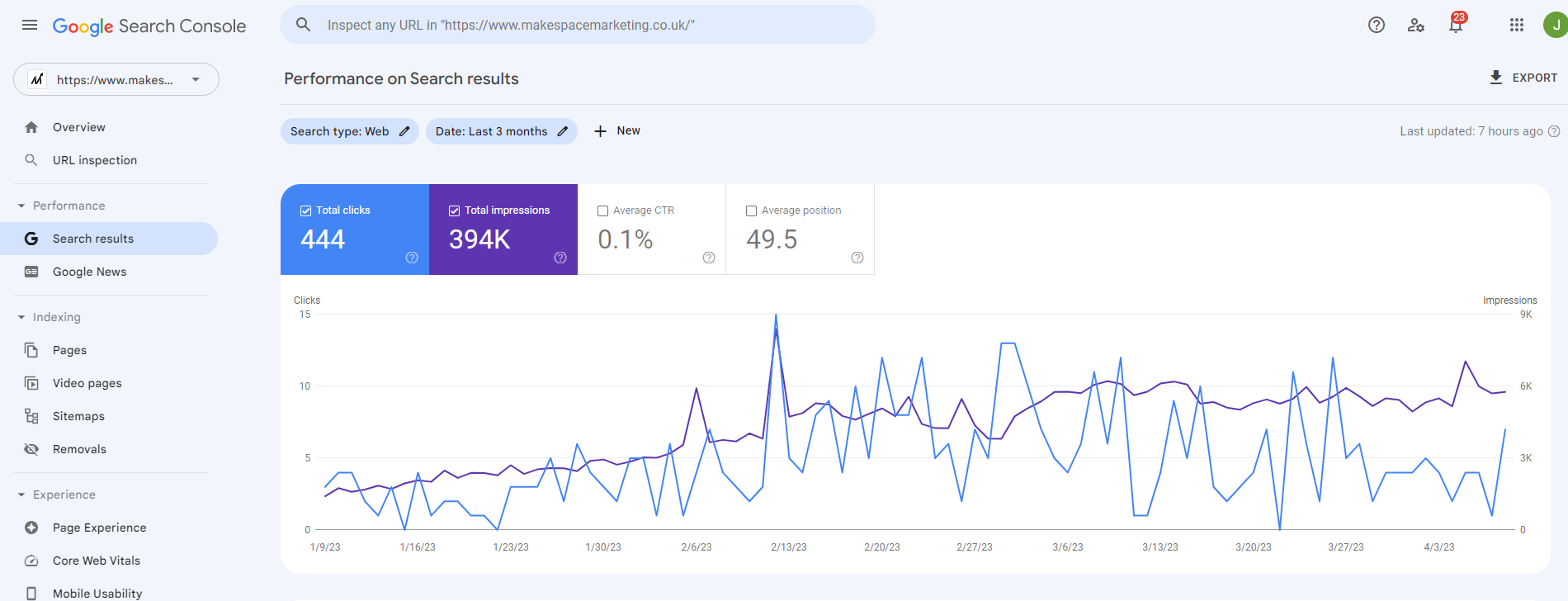What Is Technical SEO?
What Is Technical SEO?

As a website owner, you might have heard about Search Engine Optimization (SEO), a technique used to improve your website's visibility and ranking on search engine result pages (SERPs).
Technical SEO is an essential aspect of SEO that focuses on improving the technical aspects of your website to make it more accessible and easier for search engines to crawl and index.
In this blog, we'll discuss what technical SEO is and why it's crucial for your website's success.

What Is Technical SEO?
Technical SEO involves optimising your website's technical elements to make it more search engine friendly.
It involves making changes to your website's code, server, and other technical components to improve the crawling, indexing, and ranking of your website.
Technical SEO ensures that search engines can crawl and index your website quickly and efficiently.

Why Is Technical SEO Important?
Technical SEO is critical because it helps search engines understand your website better.
If your website is not optimised technically, search engines may not be able to crawl and index your pages properly, which can negatively impact your search rankings.
With technical SEO, you can improve your website's crawlability, indexability, and overall performance, which can lead to higher rankings and more organic traffic.

Understanding Crawling
Crawling is the process by which search engines discover and collect information about your website's pages.
Search engines use automated bots called crawlers or spiders to navigate through your website and index its pages.
To ensure that crawlers can access all of your website's pages, you need to create a website structure that is easy to navigate and understand.
Create SEO-Friendly Site Architecture
Creating an SEO-friendly site architecture is crucial for technical SEO.
You need to design your website for both users and search engines.
A well-structured website should have a clear hierarchy and organised categories.
A clear site structure makes it easier for search engines to crawl and index your pages, leading to higher rankings and more organic traffic.

Submit Your Sitemap to Google
Submitting your sitemap to Google helps search engines find all of your website's pages quickly.
A sitemap is a file that contains a list of all the pages on your website, designed to help search engines effectively crawl and index your website's content..
Submitting your sitemap to Google helps to ensure that all your pages are indexed and displayed in the search results.

Understanding Indexing
Indexing is the process by which search engines add your website's pages to their databases.
Search engines use complex algorithms to determine the relevance and quality of your website's pages and decide where to rank them in the search results.
Noindex Tag
Sometimes you may have pages on your website that you don't want to be indexed by search engines.
You can use the "noindex" tag in your website's code to instruct search engines not to index a specific page.
This tag is handy when you have pages that contain duplicate content or pages that are irrelevant to your website's main content.

Canonicalisation
Canonicalisation is the process of choosing the best URL for your website's pages.
Sometimes you may have multiple versions of the same page, which can confuse search engines and negatively impact your rankings.
By choosing a canonical URL, you can ensure that search engines index the correct version of your page.
Technical SEO Best Practices
Here are the best practices for technical SEO:
Using HTTPS to secure your website is not only essential for your users' safety, but it also helps improve your search engine rankings. HTTPS is an encrypted version of HTTP that provides a secure connection between a user's browser and your website's server. Google has confirmed that HTTPS is a ranking signal, which means that websites that use HTTPS are likely to rank higher on search engine result pages than those that don't.
Make Sure Only One Version of Your Website Is Accessible to Users and Crawlers Having multiple versions of your website, such as www and non-www or HTTP and HTTPS, can confuse search engines and affect your website's rankings. It is essential to ensure that only one version of your website is accessible to users and crawlers. You can do this by setting up redirects to your preferred version of the website using a 301 redirect.
Improve Your Page Speed to Enhance User Experience and Search Rankings Website speed is a crucial factor for both user experience and search engine rankings. Slow loading websites can lead to a high bounce rate and lower rankings on search engine result pages. You can improve your website speed by optimising images, minifying CSS and JavaScript files, reducing the number of redirects, and using a content delivery network (CDN).
Ensure Your Website Is Mobile-Friendly to Cater to Mobile Users With the increasing number of mobile users, having a mobile-friendly website is crucial for improving your search engine rankings. Google has introduced mobile-first indexing, which means that it primarily uses the mobile version of your website for indexing and ranking. You can ensure your website is mobile-friendly by using a responsive design, optimising images, and using mobile-friendly fonts.
Implement Structured Data to Help Search Engines Understand Your Website's Content Better Structured data is a way of organising and marking up your website's content to help search engines understand it better. It allows search engines to display rich snippets, such as ratings, prices, and events, in search results. Implementing structured data can improve your click-through rates and search engine rankings.
Find and Fix Duplicate Content Issues to Avoid Content Cannibalization Duplicate content can hurt your search engine rankings by confusing search engines and splitting your website's authority between multiple pages. It is essential to find and fix duplicate content issues on your website to avoid content cannibalisation. You can use tools like Copyscape or Google Search Console to identify duplicate content and then either remove or canonicalise the duplicate pages.
Find and Fix Broken Pages to Improve User Experience and SEO Broken links and pages can negatively impact the user experience and your website's search engine rankings. It is essential to find and fix broken pages on your website regularly. You can use tools like Google Search Console or broken link checkers to identify broken pages and then either fix or remove them.
Optimise for Core Web Vitals to Meet Upcoming Algorithm Updates by Search Engines Core Web Vitals are a set of metrics introduced by Google that measure a website's loading speed, interactivity, and visual stability. These metrics will become a part of Google's search ranking algorithm in May 2021. Optimising for Core Web Vitals can help you meet the upcoming algorithm updates and improve your search engine rankings

Conclusion
Technical SEO is a crucial aspect of optimising your website for search engines. By understanding the various technical SEO elements, such as crawling, indexing, and site architecture, you can create a website that is easy for search engines to understand and rank. Additionally, following best practices like using HTTPS, ensuring mobile-friendliness, and optimising for core web vitals can help improve your website's user experience and search engine rankings. Remember to stay on top of technical SEO issues and regularly audit your website to ensure it is optimised to its full potential.
If you're looking for help with your website's technical SEO, Make Space Marketing is here to help. Our team of SEO experts can assist you in optimising your website to improve its search engine rankings and drive more traffic to your site. Contact us today to learn more about our SEO services.
If you have found this blog useful why not read Working with a Digital Marketing Agency or How to Choose the Right Web Developer




